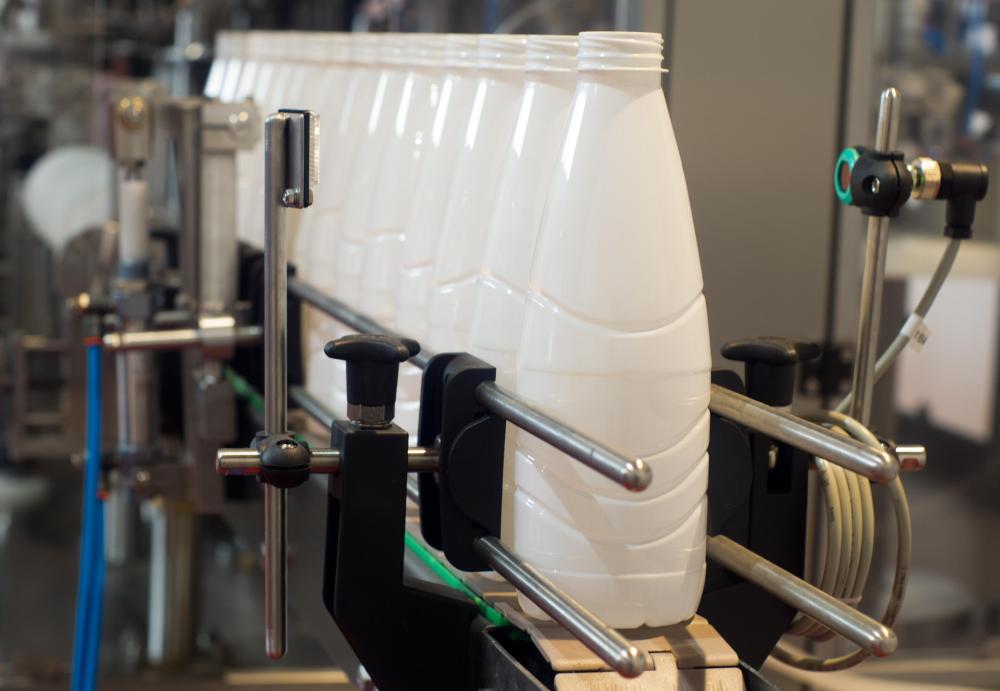At TheHealthBoard, we're committed to delivering accurate, trustworthy information. Our expert-authored content is rigorously fact-checked and sourced from credible authorities. Discover how we uphold the highest standards in providing you with reliable knowledge.
What are the Different Types of Nutraceutical Products?
Nutraceutical products are foods that may have some health or medical benefit. The word is derived from "nutrition" and "pharmaceutical" and includes dietary supplements, functional foods, medical foods, and farmaceuticals. The main difference between nutraceutical products and pharmaceutical products is that nutraceutical products are not required to undergo the same rigorous testing and regulations as pharmaceutical products.
Dietary supplements are the most common type of nutraceutical products. A dietary supplement is a liquid or capsule version of the nutrients found in foods and are taken as an addition, or "supplement," to the daily diet. Vitamins, minerals, herbs, botanicals, and amino acids are all forms of dietary supplements.

Vitamins, such as B12, are often taken to aid with metabolism, and minerals, such as calcium, are taken to strengthen bones and help prevent osteoporosis. Herbs, such as St. John's wort, are taken to relieve stress or depression, while stimulants such as tea, chocolate, and coffee are derived from botanicals. Botanical dietary supplements are usually sold in the form of tea and may included stimulant or relaxation varieties. Amino acids are taken to help with building muscle and improving muscle function.
Functional foods are another form of nutraceutical products. Instead of taking a dietary supplement, functional foods are enhanced with nutrients and eaten normally. The two categories of functional foods are processed food and fermented foods.

Processed foods are enriched or fortified with food additives, such as vitamin D, in a process called nutrification. During this process, the food is restored with its original nutrients that are usually lost during the time it takes to harvest and package. Fermented foods, such as yogurt, go through a similar fortification process by having natural live cultures added to improve the probiotic process.

Medical foods are nutraceutical products limited to prescriptions or medical supervision. These are often used when patients, such as premature babies and surgical patients, are unable to consume regular food. Medical foods are delivered through a nasogastric or percutaneous endoscopic gastric feeding tube. The nasogastric is a tube inserted into the nostril and through the esophagus to the stomach. The percutaneous endoscopic gastric feeding tube (PEG) is inserted directly into the stomach through a small incision.

Farmaceuticals are nutraceutical products that have been genetically engineered to perform better. Farmaceuticals is a word that combines "farm" and "pharmaceutical" and involves manipulating crops or animals to produce more nutrients or better genes. This gene farming involves isolating the desired nutrient and reproducing it through biotechnology.
AS FEATURED ON:
AS FEATURED ON:


















Discussion Comments
I think it's very interesting that coffee and tea are considered nutraceutical products. I usually just think of them as a food product (and a necessary part of life.)
I suppose there are some types of teas I would definitely have thought to consider a nutraceutical though. There are a lot of teas that are supposed to confer health benefits, and a lot of detox products come with a detox tea to drink.
@JessicaLynn - I'm surprised you'd want the FDA to step in and regulate herbal medicines if you like to take them. I know this might sound a bit conspiracy theorist, but I feel like no good could come of the FDA regulating nutraceutical products.
I think if anyone is going to regulate nutraceuticals, it should be a separate organization. I feel like the the FDA is pretty much in the pocket of "big pharm," so to speak. Pharmaceutical companies could only benefit from herbal product producers going out of business-just as you said, nutraceuticals are pretty much in direct competition with pharmaceuticals.
I'm a huge believer in natural medicines and all natural products. I visit an herbalist regularly and I've gotten really good results using herbal medicines instead of antibiotics.
That being said though, it's disturbing to me how little regulation there is of most supplements. I've done research on the companies I buy herbs from the most to make sure they're reputable, but from what I understand there are a lot of supplements out there that are impure or a bunch of junk!
I think the FDA really needs to step in and do something about this before any more people get seriously hurt from taking supplements.
Post your comments